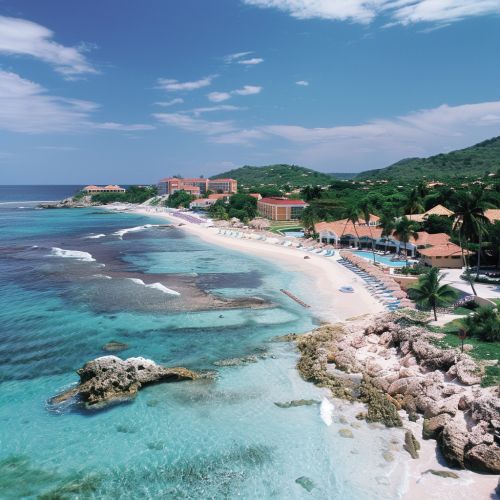Tourism Management
Introduction
Tourism management is the oversight and administration of all activities related to the tourism industry. This field encompasses a broad range of activities, including the planning and management of tourist destinations, the development and marketing of tourism products, and the coordination of services provided to tourists. Tourism management aims to create sustainable tourism practices that benefit local communities, preserve cultural and natural resources, and provide a high-quality experience for visitors.
History of Tourism Management
The history of tourism management can be traced back to the early 20th century when the concept of organized travel began to take shape. The establishment of travel agencies, such as Thomas Cook in the 19th century, marked the beginning of structured tourism. The post-World War II era saw a significant expansion in international travel, leading to the development of tourism management as a distinct field of study and practice. The introduction of jet travel in the 1950s and the rise of mass tourism in the 1960s further accelerated the need for professional tourism management.
Key Concepts in Tourism Management
Destination Management
Destination management involves the coordinated efforts to develop, market, and manage a tourist destination. This includes infrastructure development, visitor services, and the promotion of the destination to potential tourists. Effective destination management requires collaboration between various stakeholders, including local governments, tourism businesses, and community organizations.
Sustainable Tourism
Sustainable tourism focuses on minimizing the negative impacts of tourism on the environment and local communities while maximizing the benefits. This approach emphasizes the conservation of natural and cultural resources, the promotion of local economies, and the enhancement of the quality of life for residents. Key principles of sustainable tourism include responsible resource use, community involvement, and long-term planning.
Tourism Marketing
Tourism marketing involves the promotion of tourism products and services to potential travelers. This includes market research, advertising, public relations, and the use of digital marketing strategies. Effective tourism marketing requires an understanding of consumer behavior, market trends, and the competitive landscape.
Tourism Policy and Planning
Tourism policy and planning involve the development of strategies and regulations to guide the growth and development of the tourism industry. This includes the creation of tourism master plans, the establishment of tourism standards and regulations, and the implementation of policies to support sustainable tourism practices.
Components of Tourism Management
Accommodation Management
Accommodation management involves the oversight of lodging facilities, such as hotels, resorts, and vacation rentals. This includes the management of guest services, housekeeping, maintenance, and food and beverage operations. Effective accommodation management ensures that guests have a comfortable and enjoyable stay.
Transportation Management
Transportation management encompasses the coordination of various modes of travel, including air, rail, road, and sea transport. This includes the management of transportation infrastructure, the regulation of transportation services, and the development of transportation policies. Efficient transportation management is essential for ensuring the smooth movement of tourists to and from destinations.
Event Management
Event management involves the planning and execution of events, such as conferences, festivals, and exhibitions. This includes the coordination of logistics, the management of event venues, and the promotion of events to potential attendees. Successful event management requires attention to detail, effective communication, and strong organizational skills.
Visitor Services Management
Visitor services management focuses on providing high-quality services to tourists, including information centers, guided tours, and customer service. This includes the training of staff, the development of visitor information materials, and the implementation of visitor feedback systems. Effective visitor services management enhances the overall tourist experience.
Challenges in Tourism Management
Seasonality
Seasonality refers to the fluctuations in tourist demand based on the time of year. This can create challenges for tourism businesses, such as managing staffing levels, maintaining cash flow, and ensuring the availability of services. Strategies to address seasonality include diversifying tourism products, promoting off-season travel, and developing year-round attractions.


Over-Tourism
Over-tourism occurs when the number of tourists exceeds the capacity of a destination to manage them sustainably. This can lead to negative impacts on the environment, local communities, and the quality of the tourist experience. Strategies to mitigate over-tourism include implementing visitor limits, promoting alternative destinations, and encouraging responsible tourism practices.
Economic Dependence
Many destinations rely heavily on tourism as a primary source of income. This economic dependence can create vulnerabilities, such as exposure to economic downturns, natural disasters, and political instability. Diversifying the local economy and developing resilient tourism strategies can help mitigate these risks.
Technological Advancements
Technological advancements, such as the rise of online travel agencies and the use of big data, have transformed the tourism industry. While these advancements offer opportunities for innovation and efficiency, they also present challenges, such as the need for digital skills, data privacy concerns, and the potential for market disruption.
Future Trends in Tourism Management
Experiential Tourism
Experiential tourism focuses on providing tourists with unique and immersive experiences that go beyond traditional sightseeing. This includes activities such as cultural exchanges, adventure travel, and culinary tours. The demand for experiential tourism is expected to grow as travelers seek more meaningful and authentic experiences.
Eco-Tourism
Eco-tourism emphasizes responsible travel to natural areas, with a focus on conservation and sustainability. This includes activities such as wildlife viewing, hiking, and eco-lodging. The growth of eco-tourism reflects increasing awareness of environmental issues and a desire to minimize the ecological footprint of travel.
Smart Tourism
Smart tourism leverages technology to enhance the tourist experience and improve the efficiency of tourism operations. This includes the use of smart devices, data analytics, and artificial intelligence to provide personalized services, optimize resource use, and enhance destination management. The adoption of smart tourism practices is expected to continue as technology advances.
Wellness Tourism
Wellness tourism focuses on promoting health and well-being through travel experiences. This includes activities such as spa treatments, yoga retreats, and wellness resorts. The growth of wellness tourism is driven by increasing awareness of health and wellness, as well as a desire for stress relief and relaxation.
Conclusion
Tourism management is a complex and dynamic field that requires a comprehensive understanding of various components, challenges, and trends. Effective tourism management involves the coordination of multiple stakeholders, the implementation of sustainable practices, and the adaptation to changing market conditions. As the tourism industry continues to evolve, the role of tourism management will be critical in ensuring the long-term success and sustainability of destinations worldwide.
